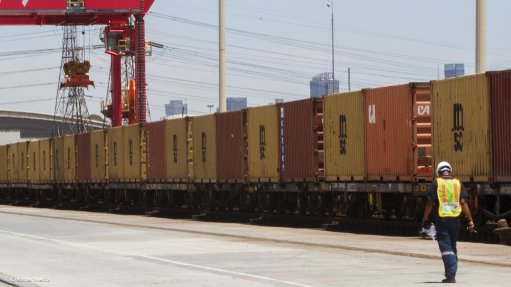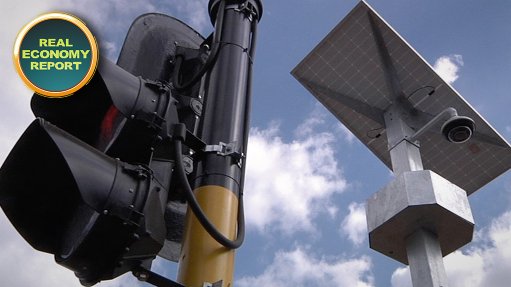Semantics around land expropriation
As I have said many times before, English is, at the best of times, a most intriguing and peculiar language. But I strongly believe that the English are not solely to blame for this. If anything, the Americans did, and continue to, play a role in butchering the language, although they profess to speaking American.
In addition to their unique form of butchering the English language, South Africans are complicating it, in some cases depriving words of their actual meaning. Take, for instance, the word ‘discrimination’, which is no longer a negative by definition. It could now be a singular positive or a double negative. One might ask, in the words of singer Avril Lavigne: “Tell me, why do you have to go and make things so complicated? . . . Life’s like this, And you fall, and you crawl, and you break, And you take, what you get, and you turn it into, Honesty and promise me I’m never gonna find you fake it, No, no, no . . .” But, as the title of her song suggests, it is ‘Complicated’.
But I digress. No, the issue is not complicated; rather, it is being complicated. When I was growing up in what is now rural KwaZulu-Natal, ‘discrimination’ was considered an act of differential treatment, something which my parents simply did not tolerate and which my mom still does not. To discriminate was considered to regard a person differently on the basis of his or her race, sex, religion, nationality or sexual orientation.
But, as the sands picked up speed in their journey through the hourglass, a differentiation can now be drawn in discrimination. It can now be both a positive and a negative. Positive discrimination is the act, through legislation or otherwise, of giving more favourable treatment to a person or a collective, based on their differentiation. The converse is that those on the receiving end of positive discrimination are experiencing negative discrimination. All this is reminiscent of Newton’s Third Law, which states that, for every action, there is an equal and opposite reaction.
But enough of the complication. All the talk in recent days about the expropriation of South African land made me think whether the notion of positive discrimination and negative discrimination might soon find its way into this discourse.
You don’t think so? Two headlines caught my eye. One, published on July 7, screamed: ‘Expropriation will not affect land run by traditional leaders, Cyril Ramaphosa says’, and the other, published on July 8, stated: ‘Ramaphosa to Zwelithini: Black land not under threat’.
So, even before the process of expropriation of South African land begins, there are already exclusions – traditional leaders will not be affected. If my facts are correct, there is a National House of Traditional Leaders, a body of 23 traditional leaders who represent the eight provincial houses of traditional leaders.
Is exclusion restricted to within the borders of South Africa, which, you would appreciate, were determined by colonial powers? It is not only South Africans that want South African land, as this headline, above a story published on www.news24.com, suggests: ‘Lesotho group petitions Queen Elizabeth to get back SA land’. According to the story, the Basuto petitioners were petitioning Britain’s Queen Elizabeth II for the readjustment of Lesotho’s boundaries. The petition relates to the British monarchy’s authorised land distribution in 1854, during the Orange River Convention, also known as the Bloemfontein Convention. According to the petition, there is land in the present-day provinces of the Free State, KwaZulu-Natal and the Eastern Cape that historically belonged to Basotho.
All this begs the question: Whose land is up, or will be up, for expropriation? Not only expropriation, let us not forget, but expropriation without compensation. What about land that was legitimately acquired – that is, was paid for and the purchaser was granted the title deed – both before and after South Africa came into being as a union and later as a republic?
It seems Des and Dawn Lindberg’s song, This Land is Your Land, has long since been forgotten. The song’s title is contextualised in the opening lyrics: “This land is my land, this land is your land, from great Limpopo to Robin Island . . . this land was made for you and me.”
Comments
Press Office
Announcements
What's On
Subscribe to improve your user experience...
Option 1 (equivalent of R125 a month):
Receive a weekly copy of Creamer Media's Engineering News & Mining Weekly magazine
(print copy for those in South Africa and e-magazine for those outside of South Africa)
Receive daily email newsletters
Access to full search results
Access archive of magazine back copies
Access to Projects in Progress
Access to ONE Research Report of your choice in PDF format
Option 2 (equivalent of R375 a month):
All benefits from Option 1
PLUS
Access to Creamer Media's Research Channel Africa for ALL Research Reports, in PDF format, on various industrial and mining sectors
including Electricity; Water; Energy Transition; Hydrogen; Roads, Rail and Ports; Coal; Gold; Platinum; Battery Metals; etc.
Already a subscriber?
Forgotten your password?
Receive weekly copy of Creamer Media's Engineering News & Mining Weekly magazine (print copy for those in South Africa and e-magazine for those outside of South Africa)
➕
Recieve daily email newsletters
➕
Access to full search results
➕
Access archive of magazine back copies
➕
Access to Projects in Progress
➕
Access to ONE Research Report of your choice in PDF format
RESEARCH CHANNEL AFRICA
R4500 (equivalent of R375 a month)
SUBSCRIBEAll benefits from Option 1
➕
Access to Creamer Media's Research Channel Africa for ALL Research Reports on various industrial and mining sectors, in PDF format, including on:
Electricity
➕
Water
➕
Energy Transition
➕
Hydrogen
➕
Roads, Rail and Ports
➕
Coal
➕
Gold
➕
Platinum
➕
Battery Metals
➕
etc.
Receive all benefits from Option 1 or Option 2 delivered to numerous people at your company
➕
Multiple User names and Passwords for simultaneous log-ins
➕
Intranet integration access to all in your organisation















